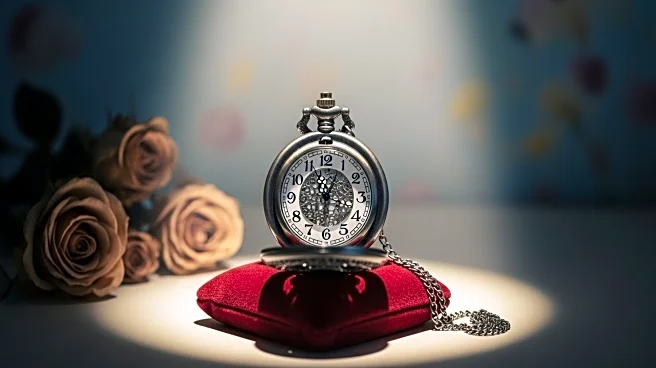What's Happening?
Bumble has introduced a new advertising campaign titled 'For the Love of Love' to combat dating app fatigue, particularly among Gen Z users. The campaign features a black and white ad showcasing real couples who met through Bumble, emphasizing classic romance and sentimentality. The ad is set to the 1971 track 'Bless the Telephone' by Labi Siffre and highlights tender moments such as hand-holding and eye contact. Bumble's founder and CEO, Whitney Wolfe Herd, provides a voiceover encouraging viewers to 'start your love story.' This campaign marks a shift from Bumble's previous global campaign, which had a more irreverent tone. The new approach aims to celebrate genuine connections and the beauty of authentic love, as stated by Neela Pal, Bumble's senior vice president of marketing.
Why It's Important?
The campaign is significant as it addresses the growing issue of dating app fatigue, which affects 78% of all users and 79% of Gen Z, according to a 2025 survey by Forbes Health and OnePoll. By focusing on meaningful relationships, Bumble seeks to differentiate itself from competitors and revitalize user engagement. This strategic move comes at a critical time for Bumble, which has faced declining business performance, including a 7.6% revenue drop in the second quarter of 2025 and a 30% workforce reduction in June. The campaign's emphasis on genuine connection may help Bumble regain user trust and improve its market position.
What's Next?
Bumble plans to run the 'For the Love of Love' campaign in multiple countries, including the U.S., U.K., France, Germany, Australia, and Mexico. The company aims to capture the essence of love that is raw and honest, as described by Amy Ferguson, chief creative officer of Special US. As Bumble continues to navigate its business challenges, the success of this campaign could influence future marketing strategies and potentially lead to a recovery in user engagement and revenue growth.
Beyond the Headlines
The campaign's focus on timeless romance and genuine connection may also reflect broader cultural shifts in dating preferences, where individuals increasingly value emotional stability and authentic relationships over casual encounters. This trend could influence how dating apps design their platforms and market their services in the future.









